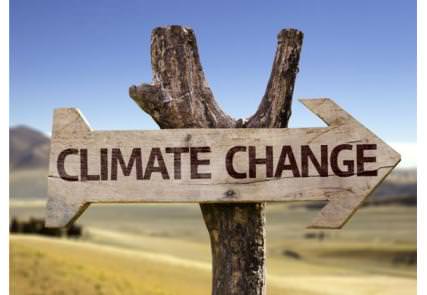Corporate leaders find the skills they need with CSE’s unique Global Training Program on Sustainability
The Trump withdrawal from the Paris Agreement might slow but will never stymie progress on climate change – business leaders will make sure of that!
There is an important profit motive to staying in the game. A leadership role insures market share, builds brand and reputation, attracts the best and brightest employees, protects supply chains. More than 1000 political, corporate and academic leaders signed the “We Are Still In” declaration, pledging to help meet America’s Paris Agreement emissions target. Participants include California and New York – global powerhouses with huge GDPs: California’s larger than India’s; New York’s larger than South Korea.
Evidence is in action. The Centre for Sustainability and Excellence (CSE) case studies, used totrain global corporate executives from the Fortune Global 500, cross industry and government sectors. Even at the state level, CSE developed a case study focusing on carbon reduction with the Treasury Office of the State of Illinois. Under the leadership of Nikos Avlonas, award-winning author of the best-seller Practical Sustainability Strategies (Wiley, 2014), CSE has undertaken research on Silicon Valley and developed case studies covering: Sustainability and Materiality Assessment; Sustainability Strategies and Reporting; External Verification and Assurance; SROI and Stakeholder Engagement: LCA, Supply Chain and Green Buildings.
This research supports findings that major corporations have contributed to the $8.1 trillion investment in green technologies since 2007 (Ethical Markets Media), side by side with private and institutional investors, a decisive market signal that the transition to a clean economy is inevitable. The case studies demonstrate that a sustainable global economy allows businesses to:
• Leverage low-carbon market opportunities;
• Benefit from cross-border policy coherence, particularly in new markets;
• Be recognized as leaders among stakeholders;
• Increase investor confidence by managing climate risks;
• Align investments to long-term policy.
More than 400 institutional investors with US $24 trillion of assets under management encourage national leaders to implement the Paris Agreement into national law. Even the corporate savvy in the Trump administration support climate change action: Rex Tillerson, formerly of Exxon; Gary Cohn of Goldman Sachs, daughter Ivanka and son-in-law Jared Kushner. Disney’s CEO Robert Iger and Tesla’s CEO Elon Musk left Trump’s economic advisory council in protest.
Corporate leaders are taking the initiative with or without government leadership. Michael Terrell confirms Google has signed contracts for over 2 Gigawatts of renewable energy, making Google “the largest corporate renewable energy purchaser in the world,” says Terrell. Google has committed over $2.5 billion of capital in investments in renewable energy projects.
Companies recognize that addressing the effects of climate change is in their best interest. Chief Sustainability Officer Steve Howard says IKEA is already feeling the effects of extreme weather events, from floods in Asia disrupting supply chains to Hurricane Sandy affecting its business by $9 million dollars. IKEA is also concerned with the social impacts on employees and their communities.
While chief executives from major US companies such as Coca-Cola, Dow Chemical, General Electric, Johnson & Johnson, Unilever and Virgin penned a letter expressing strong support for US adherence to Paris Climate Agreement, small businesses provide more than half of the jobs in the United States. Sadly, almost 40 percent never recover when hit by an extreme weather disaster. The American Sustainable Business Council represents these voices to the US government.
And even the US government isn’t completely out of the effort. At the May 2017 intersessional climate talks in Bonn, Germany, a US team-member co-facilitated with China the transparency discussion, an important topic showing significant progress and one of the building blocks of the Paris Agreement.
The CSE trainings in New York and Toronto will address these issues specifically. CSE has trained North American executives from Medline, Heineken, Under Armor, LSI, AMB, as well as from around the world.
Modules on GHG emissions and carbon footprint reduction provide foundational knowledge needed to move on climate change. The next U.S. training is in New York City, September 28-29, led by Nikos Avlonas. Visit the website for other trainings around the world or for online courses offered by the Sustainability Academy.







